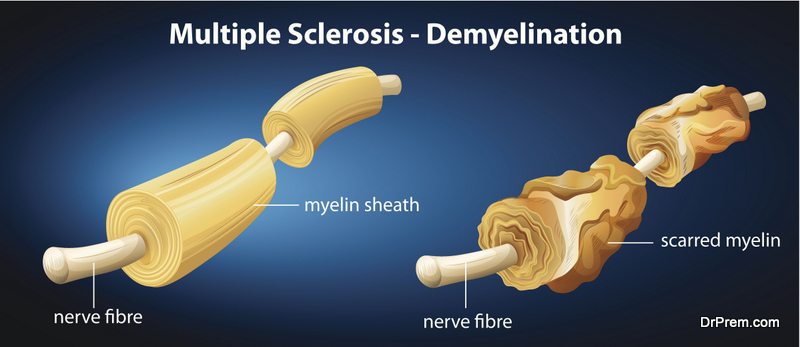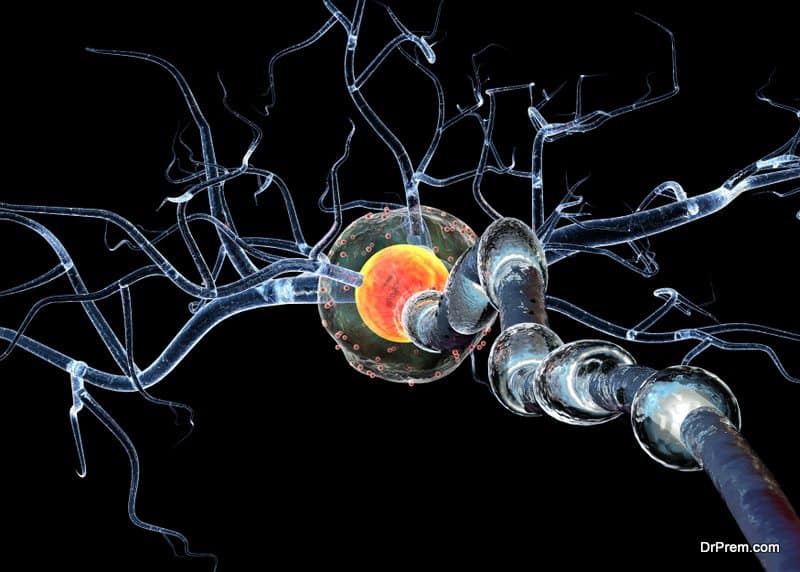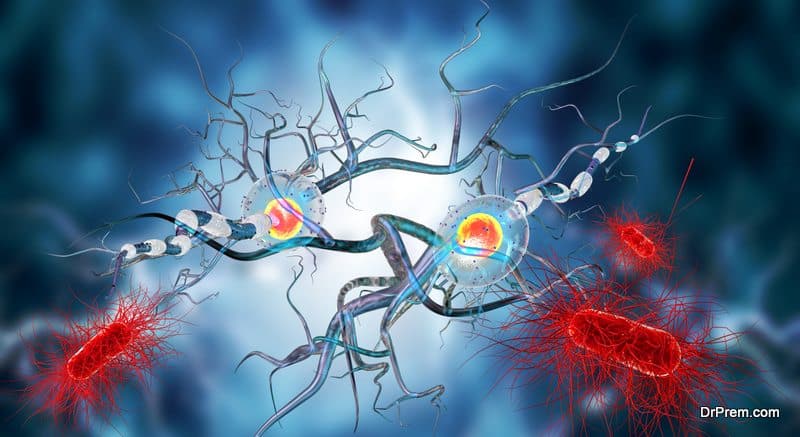About 400,000 people in the US and 2.1 million in the world are battling with multiple sclerosis (MS), but an effective cure is yet to be found. Although the life expectancy of MS patients is almost similar to the normal people, recent breakthroughs for multiple sclerosis can help in managing the disease better.
Multiple Sclerosis is a potentially debilitating disease affecting the brain, spinal cord, and optic nerve of the eyes. People gradually lose control of their muscle movements, physical balance, and develop vision problems. Considering its March – the month of awareness for Multiple Sclerosis, it is time to create awareness about the disease and understand the treatment options available.
Possible causes of multiple sclerosis:
The exact cause of the disease is not yet fully understood. Many researchers consider it as an auto-immune disease when the myelin sheath, the fatty protective covering around the nerve fibers, is attacked, thereby upsetting the normal transmission functions.
A study report, published two years back in the New England Journal, states that human coronavirus (HCoV), a virus causing respiratory infection can also, out of the blue, strike people with multiple sclerosis.
Multiple sclerosis prevention cannot be ascertained. But factors like smoking and low body immunity can possibly put a person at risk for this disease.
Innovations in recent breakthroughs for multiple sclerosis treatments:
The best treatment for multiple sclerosis lies in medications, followed by some lifestyle changes that can help in managing the symptoms. Since last two decades, there have been great strides in multiple sclerosis treatments that have opened up new inroads for recovery. Some of them are:
Antibody treatment:
This may be a better alternative to anti-inflammatory drugs. This treatment enables the patients to enjoy a better quality of life. A type of white blood cell known as the B cell triggering MS can be neutralized by monoclonal antibodies.
Nanotechnology:
This may turn out to be the best treatment for multiple sclerosis some day. Researchers are highly optimistic about the potential of gold nanocrystals in reversing the progression of MS and help in restoring the mobility of patients.
Deep transcranial magnetic brain stimulation:
It is another effective way of treating fatigue and tiredness of MS patients. Electric currents are sent into the core of the brain to stimulate neuron activity. The patients reported a 14% reduction in tiredness measured on the fatigue severity scale.
Therapies with sex-specific hormones:
MS incidences are higher in women than in men. This is because of the protective function of the male hormone testosterone, which is absent in women. In another recent breakthrough for multiple sclerosis treatments, the protective molecule found in male mice’ testosterone can cure MS symptoms of female mice, when tested in the lab. The challenge now emerges how this can be made effective in human beings.
New drugs heralding the best treatment for multiple sclerosis:
The best strategy to slow down MS is to go for disease-modifying therapies (DMTs), which reduces the frequency of attacks and relapses. There are about 15 FDA approved DMTs and a recent inclusion is the drug Ocrelizumab, which significantly reduces the relapsing frequencies and progression of PPMS (Primary Progressive Multiple Sclerosis).
This immunosuppressant drug targets the B cells, known to be the culprits behind the destruction of Myelin sheath. The drug in its Phase III clinical trial is known to have cut down the relapse rates to about 47%, reduced disability to 43%, and decreased the development of lesions by 95%.
There are several other innovative drugs in the pipeline awaiting the FDA nod. They are either in the experimental stage or running the last phase of clinical trials.
Rituxan for treating lymphoma and rheumatoid arthritis is effective in treating MS:
In a recent breakthrough for multiple sclerosis treatments, the long-term safety and effectiveness of Rituximab in depleting the peripheral B-cells, responsible for producing antibodies triggering MS symptoms, got published in PLOS One journal.
The researchers involved in the above study notified that this drug is often been used as an off-label therapy to treat immunity related neurological disorders including multiple sclerosis.
Other novel therapies to restrict MS:
Recent researches on MS have identified new areas of investigation where other treatment modalities can be effective.
- Resistance training can be effective for multiple sclerosis prevention by slowing down the progression of MS.
- A study by researchers from Oregon Health & Science University in Portland revealed that Lipoic acid, an over-the-counter antioxidant, can cause 68% improvement in brain atrophy in MS patients.
- The gut microbe Prevotella histicola has also shown to suppress multiple sclerosis in mice as revealed by the researchers of the Mayo Clinic in Rochester.
No doubt, the recent breakthroughs in multiple sclerosis treatments seem to be highly promising for patients, bringing them closer to cure.









